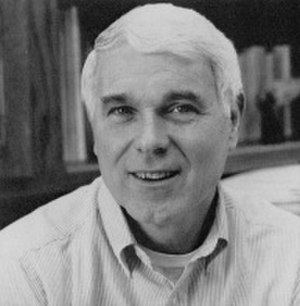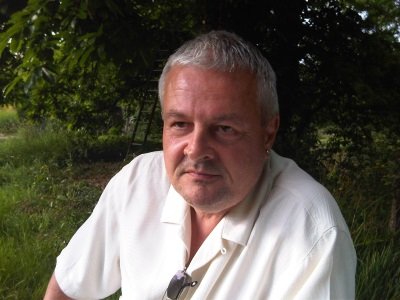The International Society for the History, Philosophy, and Social Studies of Biology awards the David L. Hull Prize biennially to honor the life and legacy of David L. Hull (1935–2010). The Hull Prize is awarded to an individual who has made extraordinary contributions to scholarship and service in ways that promote interdisciplinary connections between history, philosophy, social studies, and biology and has fostered younger scholars' careers. These strengths reflect the contributions of David Hull to our professions and our Society.
Garland Allen

Nominations were considered by the 2023 Hull Prize Committee, consisting of Michel Morange, Greg Radick, Thomas Reydon, Vivette García Deister, and Marsha Richmond (Chair). In a break from tradition, the Committee this year bestows two prizes. We are pleased to award the Hull medal posthumously to Garland Edward Allen (1936–2023), Professor Emeritus of Biology at Washington University in St. Louis.
Gar's scholarship in the history of biology is well-known among historians and philosophers alike. Regarding ISH as his main professional organization and intellectual home, Gar was a regular fixture at meetings over his long career. He served the Society in many ways, notably as President from 2005 to 2007.
Gar was an expert in his discipline—the history of biology, dating from the establishment of the Journal of History of Biology in 1968 by Gar's major professor at Harvard, Everett Mendelsohn. (Years later, in 1998, Everett asked Gar to replace him as Editor of JHB, sharing duties with Jane Maienschein.) Beginning with JHB's first issue, Gar began publishing articles anchoring genetics' rapid growth to Thomas Hunt Morgan and the research program in Drosophila he carried out with a talented group of former students in Columbia University's “Fly Room.” Gar, however, also acknowledged the importance of other leading figures, writing about the views of Hugo de Vries, William Bateson, and Richard Benedict Goldschmidt. These contributions were critical to the founding of the history of genetics.
The importance of Gar's scholarship is well known. In 1975, Gar made a foundational contribution by publishing the textbook Life Science in the Twentieth Century, widely known and studied by generations of graduate students. This book was quickly followed in 1978 by his authoritative biography, Thomas Hunt Morgan: The Man and His Science. Both books, complemented by the numerous articles published throughout his long career, prompted his friend and fellow historian of biology Fred Churchill to label him “the most important interpreter of the history of turn-of-the-century American biology.” The breadth of his intellectual reach can also be seen in his critical writings on eugenics and the notable biology textbooks he authored and co-authored that embedded biological concepts in their historical and social contexts.
Gar considered ISHPSSB his intellectual home. He not only closely interacted with historians but, reflecting his strong belief in the value of interdisciplinarity, also with philosophers, science studies scholars, and working biologists. As many members of the ISH community well know, Gar consistently encouraged generations of upcoming scholars, reaching out as an equal despite his high ranking as a senior scholar, welcoming them, and making them feel valued.
While Gar did not seek awards or public recognition, he was honored to receive the Sarton Medal, the highest award bestowed by the History of Science Society in 2017. Undoubtedly, he would have been even more pleased to receive the 2023 David L. Hull Prize. It is bittersweet not to be able to present the Hull Prize medal to Gar in person, but highly appropriate to formally acknowledge his extraordinary contributions to the Society and the profession.
John Dupré

On behalf of the Society, the 2023 David L. Hull Prize Committee, consisting of Vivette García Deister, Michel Morange, Gregory Radick, Thomas Reydon, and Marsha Richmond (Chair), decided this year to award two prizes.
We are pleased to award the Hull medal to John Dupré, Professor of Philosophy of Science and Consulting Director of Egenis at the University of Exeter.
After receiving degrees from the Universities of Oxford and Cambridge, John taught at Stanford University, Birkbeck College (University of London), and the University of Exeter. He has been elected to the American Association for the Advancement of Science, the American Academy of Arts and Sciences, and (this year) to the American Philosophical Society.
John's scholarship exemplifies the interdisciplinary approach to studying the life sciences that is characteristic of the Society. His seminal contributions to the philosophy of biology, general philosophy of science, metaphysics and epistemology in general, central debates in biology and society, and the public understanding of science are voluminous.
As one of the prominent representatives of what became known as the "Stanford School," John played a key role in reshaping general philosophy of science in the second half of the twentieth century by focusing attention more firmly on the variety of practices that are found in the sciences, as well as the social and historical context in which science is done. His book, The Disorder of Things (1993), weaved together focal topics in the philosophy of biology, such as the ongoing debate on the foundations of biological classification and the nature of species, with central debates in general metaphysics on such issues as natural kinds, causation and determinism, as well as the long-standing discussion in general philosophy of science on reductionism and the unity of science. The book has influenced multiple generations of philosophers in various areas of specialization and will continue to do so for the foreseeable future.
A similar lasting influence is John's more recent development of a processual perspective on the phenomena of life, culminating, among other things, in his 2018 co-edited book, Everything Flows. This book represents a fundamental rethinking of the metaphysics of the living world that has opened up new lines of research in metaphysics, the philosophy of biology, the philosophy of medicine, and other fields. John's scholarship has strongly affected academic thinking and the public debate on critical societal aspects of biology. His criticisms of evolutionary psychology and his detailed analysis (in collaborations with sociologists) of what advances in genomics research imply for human life and human societies — and perhaps more importantly, what they do not imply — have yielded key insights for the public understanding of these areas of science and their possible effects on society.
John has not only shaped the field through his extensive scholarship and writing but also through his tireless leadership in the academic community. John served as President of the British Society for the Philosophy of Science and, most recently, as President of the Philosophy of Science Association. In the international academic community, John has long advocated for closer connections between philosophy of science and scientific practice, and for more integrative collaboration between philosophers, social scientists, historians, and scientists. His engagement and generosity in mentoring younger scholars is known to everyone who ever interacted with John as an early-career scholar — as many of us have. This is especially manifested in John's long-term membership of the European Advanced School in the Philosophy of the Life Sciences' Steering Committee, which since 2012 has offered a biennial summer school for graduate students and early-career postdocs, which the Society has recently supported as an off-year workshop.
Perhaps John's most notable institutional contribution was as founder of Egenis, the Centre for the Study of Life Sciences at the University of Exeter, of which he was Director for twenty years. Conceived as an interdisciplinary institute and known for integrative history, philosophy, and social studies of the life sciences, Egenis has hosted scores of researchers, workshops, and conferences, including the ISHPSSB meeting in 2007. Many academics, especially early-career scholars, have benefited from its highly supportive and stimulating intellectual atmosphere, influenced by John's accessible and open personality.
The depth and scope of John's scholarship, his tireless service to the disciplines represented in the Society, and his generosity towards early-career scholars exemplify the spirit of David Hull. We are delighted to award John the 2023 David L. Hull Prize.
Marsha Richmond
Chair of the Hull Prize Committee
